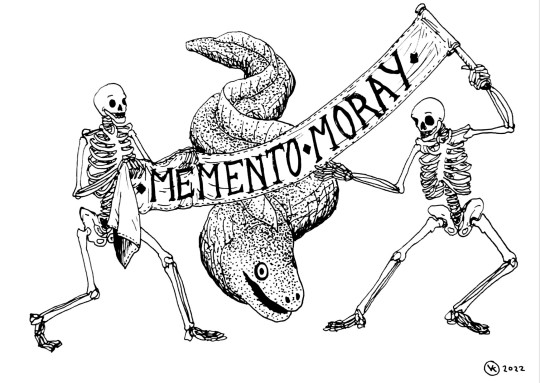Text
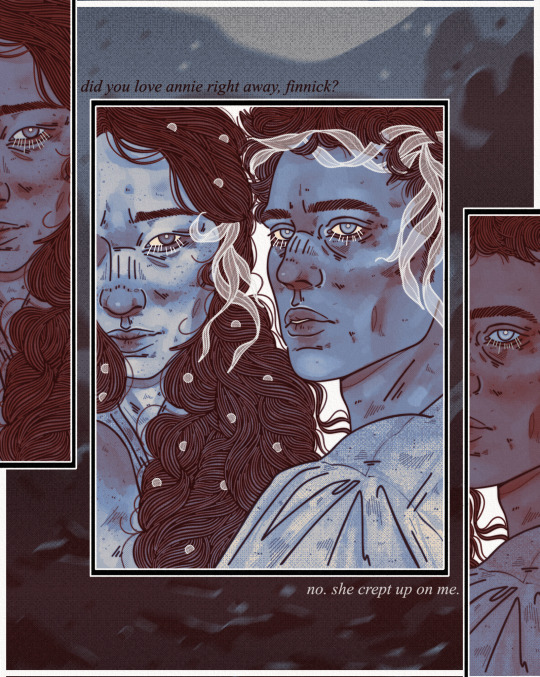
she crept up on me.
prints + merch + commission info pinned to profile :)
2K notes
·
View notes
Text

My other car is a rainbow trout
Prints
61K notes
·
View notes
Photo
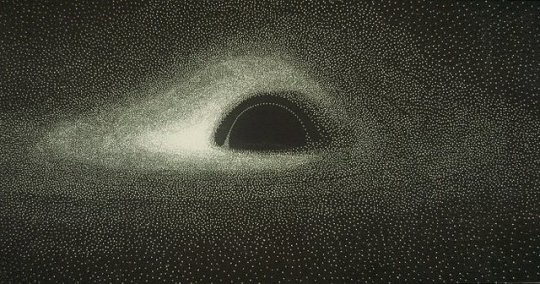
The first simulated image of a black hole was calculated with an IBM 7040 computer using 1960 punch cards and hand-plotted by French astrophysicist Jean-Pierre Luminet in 1978.
79K notes
·
View notes
Text
Sorting More Ballad of Songbirds and Snakes with Sorting Hat Chats

This post uses the Sorting Hat Chats system, originally created by @sortinghatchats. It’s a personality system, sort of like mbti or enneagram, except it developed right here in fandom for talking about and analysing fictional characters.
SHC is about two things — your motive (called your primary) and your method (called your secondary). You can read a full explanation of the system over here (thanks, @wisteria-lodge!)
@the-phoenix-heart has already done a great post on Coriolanus and Lucy Gray over here, which I recommend you go and read if you haven’t already! But since I have A Lot Of Thoughts about this book, whoops, I figured I’d chat about the sortings of a few of its other characters.
Also, good lord this ended up long for a post just about three characters. Like, grab some snacks, grab a glass of water. The rest of this post is below the cut, to protect your dash. You ready? Let’s go!
Sejanus Plinth — Double Lion with a Badger primary model and possibly a singed secondary
Starting with his primary — Sejanus is a good example of how Badgers and Paragon Lions (that is, Lions with Badger values) can be really difficult to distinguish from one another, especially in fiction. People are people and this means something to him, in a way it doesn’t to either the Capitol or his father. It’s a Badger ideal, but it’s not exclusive to Badgers. Although Sejanus is so incredibly heartfelt about it that I do think he’s a Felt primary (Lion or Badger).
There’s his angst about leaving Two, his community that he still considers an incredibly important part of his identity, that could be a Badger primary thing… but it also could be a human thing. And it’s so tied up in his guilt for his father’s actions during the war, and I think any primary could be hit hard by a parent producing munitions for a war against their own people. (And later using the money from said munitions to save their own skins and move away from home. Sejanus has reams of survivor’s guilt, and that’s just a person thing.)
I could still be convinced either way, I think (and if anyone reading has strong opinions, I’m curious to hear your thoughts!). But I’ve come down on Lion for him, and that’s because of the way he talks so readily about systems and what’s right, not just the Badger that’s a person! stuff. When Dr. Gaul says it’s the Capitol’s right, to treat the Districts how they choose, he doesn’t come back with they’re people, how could you? but meets her at her level, Idealist to Idealist. “You’ve no right.” Everyone is born with life and freedom, and “they’re not yours for the taking.”
There’s also the way he lives for so long in the Capitol without giving an inch. Badgers are External primaries, meaning they tend to adopt the values of their larger communities. I’d expect a Badger to have more… doubt, more misgivings. Or to dehumanise the Capitol more, as a way to cope. But Lions have a way of digging in their heels and saying no, I know what’s right. They’re also, classically, the most at peace with being loners. And Sejanus isn’t happy being alone in the Capitol… but you get the sense he’d choose it every time over compromising his ideals.
I also think having him as a Lion creates an interesting read on the way he bonds so easily with Coriolanus and not with his father, despite the two being really quite similar people in a lot of ways. Sure, Coriolanus is charismatic and trying to be liked in a way that maybe Strabo isn’t, I’m sure that’s part of it. But Coriolanus, fellow Lion primary, also seems to just… get it, where Sejanus is coming from with his ideals. Coriolanus doesn’t like it — Sejanus is rejecting everything that his Lion has been fighting for most of his life. But he gets the innate drive, because he’s the same way with his own success, his safety and control, his family’s power. So he slots it into his calculations about how to act around Sejanus and moves on. Whereas I get the sense that Strabo probably doesn’t understand Sejanus in quite the same way.
(External primaries — Badger and Bird — have this knack for just deciding to like something, or to be alright with something. In parents, this can often manifest in expecting their kids to be able to do the same thing. I don’t think we have enough information on Strabo to conclusively sort him, but I do wonder if that’s what’s going on here.)
All that being said — groups and his community in Two, forming one with the rebels, are important enough to Sejanus that I’m going to say he has a full Badger model, rather than just being a Lion with Badger ideals.
As for his secondary, he’s a Lion, through and through. He goes the direct route, he’s unapologetically himself. He can do the Lion secondary “dimmer switch” where he stays quiet about parts of himself or his ideals — he would have had to learn that, to survive as long as he did. But the moments where he’s at his most powerful… I’m coming back to that conversation with Dr. Gaul again. He stands his ground and says “You’ve no right”. It might not get him anywhere in the text itself, but as a reader that’s a powerful moment. Even Coriolanus is grudgingly impressed by his pluck.
In this he’s like Katniss, another Lion secondary. She’s at her most powerful when she can stand her ground, speak her truth, and shoot straight for the problem at hand. It’s the berries, it’s speaking from the heart in her propos, it’s shooting Coin. But it’s also such a dangerous thing to be in Panem, and Collins is keenly aware of that. It so easily could have gotten her killed. Sejanus is a case where it did.
An Aside on the Way Collins Writes Idealists vs Loyalists That Has Become it’s Own Section as it’s So Damn Long
The contrast between Sejanus and Katniss is also a good example of the way Collins tends to write about Idealist primaries (Lion and Bird) vs Loyalists (Snake and Badger). When Collins writes Idealists, they have a tendency to sort of… careen off some edge or another, for their drive, or their ideals, or their philosophy.
Coriolanus loses himself in his drive for control, safety. He makes himself someone who will thrive in the Capitol, because he values his own comfort more than he values the snatches of empathy, of another way forward, that he ponders throughout Ballad. And so he murders the part of himself that cares. The boy who told Lucy Gray that he should be like Sejanus and try to quit the Games ends up trying to kill them both. This is his tragedy.
Gale loses himself in his drive to defeat the Capitol. He makes himself someone who has what it takes to help win the war, because he values justice and perhaps revenge more than he values the human life on the ground. And so he murders the part of himself that cares. The boy who told Katniss that he’d protect their families above everything gets Prim killed. This is his tragedy.
Coin you can read as either or both of the above, depending on how much you think she believed in rebel justice vs her own security and power. We’ll get to Dr. Gaul later on, but she’s also an example of someone who cared more for her own safety and philosophy than the lives of the people she has power over.
It’s not as simple as “good Loyalists, bad Idealists” — certainly the Idealists in this series are written sympathetically, even when the text disagrees with them. We understand Coriolanus wanting his family to be safe and fed. We understand Gale wanting justice. But surviving in a dystopian dictatorship, under that kind of violent oppression, is hard, and enacting meaningful change is even harder. Every single character has to grapple with that, but the Idealists tend to get the worst of it. Whether they choose to submit for personal gain like Coriolanus or fight fire with fire like Gale or Coin, they lose something of themselves in the process, and it drives them to tragedy one way or another.
And then there’s Sejanus. Sejanus, who knows the risk of loosing himself, who’s seen his father do the exact same thing and who knows what the cost of that has been. He will not murder the part of himself that cares. He will not even pretend. But he doesn’t know how to move forward for his ideals, without that first act of self-mutilation, and he can’t live with himself for that.
And… this is speculation, but I think maybe he’s terrified that he’s destined for it anyway. “What makes you think I could do that?” he asks Coriolanus, when Coriolanus says he can do good with the Plinth fortune when he inherits. There are lots of reasons Sejanus might say that. Maybe it’s just unthinkable to him to say that sort of money could do good. Maybe, in SHC terms, it’s a sign of burning on his secondary, that he doesn’t think he’s capable of his own actions doing good. But I also think it’s possible that he really doesn’t think he’ll get that far with his whole self intact, after the pressure exerted on him by his father, by the Capitol. That he thinks either his compassion will die young, or he will. So he nearly looses himself to despair, instead.
But to be a Loyalist, in this series, is to have something that grounds you. It protects you from loosing yourself the same way. Peeta is aware of the risk of self-mutilation. “I don’t want them to change me,” he says, before his first Games. But he’s a Snake primary, and the way he keeps hold of himself is his devotion to Katniss. To change him, Coriolanus must remove this devotion — the hijacking — but even this cannot last. Katniss, likewise, is kept focused and steadied by her own Snake primary, by the people she fights for. It’s still difficult — wars have a way of coming for the people you love. But even when Katniss is at her lowest point, her love still centres her. When she kills Coin, it’s “for Prim”.
The text is saying — yes, the world is big and you are very small. But if you can help one person, that means something. If you can fight for one person, that means something. And those small acts of kindness and love are where change comes from, in the end.
This is how I think Lucy Gray manages to be the rare Idealist in this series who doesn’t careen off some edge or another. Because that sort of small-scale love is her ideal. She’s focused, she’s grounded, she cares for the Covey and her own personal freedom and the impact of her own actions on the world.
And she’s flexible, about her ideals. When Coriolanus and Coin and Gale and Dr. Gaul careen off that edge it’s sort of… it, for them. There’s no coming back, they’re too committed for that. Sejanus, if I’m right, is terrified that will be him, too. Lucy Gray is no stranger to becoming morally grey. She’s a victor, she’s killed people. But, to her, this does not prevent her from doing the work to walk on the right side of the line. This does not excuse her from doing the work to walk on the right side of the line. It’s her life’s work and she will see it through.
And then we have Coriolanus. And the thing is, he starts off with these sort of small-scale ideals, too. He cares for his family, he cares for Lucy Gray, and he prioritises them over a lot. And you could read that as being a performance, or that he only cares for what their wellbeing could do for him. I know a lot of people read him that way. But there’s another reading where it’s at least a mix. I’d argue even his care for Sejanus winds up being at least halfway genuine. And in that reading… you get the sense that his care for them could have been what saved him, if only he had let it.
Dr. Volumnia Gaul — Double Bird
Double Birds in fiction are classically either the (mad) scientist or the mentor figure. With Dr. Gaul being both, is it any wonder this is her sorting? @the-phoenix-heart already mentioned her sorting in their post, but as that was a quick one-liner and I have Many Thoughts, I’m going to chat about her here for a little bit!
So, Bird primary — the way she mentors Coriolanus (and to a lesser extent the other Hunger Games mentors) is very Bird. She lays out the evidence of her system, her worldview, and expects this will be what convinces people to follow suit. @the-phoenix-heart wrote that Coriolanus probably built a Bird primary model for her, and I absolutely agree. And then there’s the bit where she says that what she loved about the war was that it proved her right… which is such an Idealist thing to say, but maybe swings a little more Bird, too. There’s that Bird drive for truth, as opposed to for a cause (which would swing Lion).
As for her Bird secondary, that’s obvious too. She loves plans, she loves tools, and she’s always working on tinkering with both to make them better. Her mutts are a beloved tool. The Games are a beloved tool. Coriolanus, fellow Bird secondary, takes a little while to come around to her ideals, but the Games as a tool? Control as strategy? He gets that immediately. “So obvious. Too obvious,” he says, about controlling the eternal war.
There’s an interesting thing about her Double Bird, mad scientist vibes, though, that I think separates her from the classic Double Bird scientist who gets so caught up in their scientific shenanigans that they don’t realise or care how “mad” they come off.
This is pure speculation, but — what do we think she was like, growing up? She’s sadistic, a “nerd”, quite probably some form of neurodivergent. What are the odds she was the “weird kid” in her class? Which is a hard thing to be under the best of circumstances, but in the Capitol? It must have been brutal. Thinking of her this way unlocked a lot about her character and motivations, for me.
No wonder she decided it was true that humanity is brutal, vicious, at constant war with itself. No wonder she doesn’t take on evidence that questions that truth. No wonder she loved the war, when everyone else suddenly saw what she did. No wonder she loves the Games, which specifically use children as an example of the brutal nature she sees in humanity. Finally, something to point to when people tell her that children are innocent.
And no wonder she values control so highly. I think she probably learnt quite young — at school, maybe at university — that fear is a powerful means of control, of personal safety. It’s one of the main tools she passes down to Coriolanus. Getting back to what I mentioned about her Double Bird, mad scientist vibes — in SHC terms, I think this is an Actor Bird costume she’s built for herself, as well as being reflective of her actual sorting. Everything “mad” about her seems so carefully calculated to manufacture a reaction. The nursery rhymes when she starts a conversation, that she drops the moment things get truly serious. The carefully planned encounter with Clemensia and the snakes. She’s using the trope itself as a tool, because she knows “the mad scientist” is something that scares people.
Tigris Snow — Badger Snake with an exploded Badger secondary model in Ballad and an Actor Bird secondary model in Mockingjay
Unlike every other character in this book who’s been sorted so far, Tigris never talks about ideals or truths or philosophies or causes. She talks about people — her family most of all, but others as well. Lucy Gray is a person, and that instantly matters to her. She’s definitely a Loyalist, but I could see Snake, I could see Badger. She’s a minor enough character that you could pull her either way. But I’ve come down on Badger for her for a couple of reasons. Apart from Sejanus, she’s one of the main mouthpieces for the “the districts are people and that matters” argument, which as I’ve said before isn’t exclusive to Badgers but is a Badger thing.
And it’s a small thing, but there’s the way she refuses to hear anything bad against her boss, Fabrica, as Tigris is so grateful she gave her a position in fashion. I think a Snake would be more likely to say that no, she doesn’t owe Fabrica anything, if Fabrica is going to treat her like that. But Badgers take their obligation to the group seriously, and they can run into problems with dismissing their own worth in the process.
As for her secondary… there’s definitely some Badger there. She’s the main caretaker in the Snow household and caretaking is classically a Badger secondary thing. But the fact that this is something she’s had to learn how to be makes me think it’s probably a model she’s picked up for that specific purpose — which then exploded, this girl seems to always be up all night working.
The biggest example of her problem-solving is Coriolanus’ Reaping Day shirt, and from that we learn that she’s adaptable. Take the fabric from an old pouch, exchange favours with the maintenance man, tell your boss her curtains need bleaching so you can slip in the shirt while you’re doing it. Rapid-fire Bird, Snake — she’s in her element, fashion, which makes it hard to distinguish between the two. But there’s the way she looks around at her environment for cues. The tesserae she takes from the walls on the maid’s bathroom for buttons.
And there’s also the playful way she seems to have of coming up with little words and phrases on the fly, as a kid. Nicknames like Coryo and the Grandma’am, and the mantra Snow lands on top. I think she’s a Snake secondary, the balance to Coriolanus’ Bird that made them such an effective team growing up. It’s the same thing we see with him and Lucy Gray, another Snake.
But then we arrive at Mockingjay, and Tigris feels so incredibly different. She’s this very carefully constructed persona of a tiger, enigmatic and silent with a purr when she talks. In SHC terms, it’s an Actor Bird costume, it’s too obviously constructed to be anything else. As for why she made it… that’s anyone’s guess. But it’s such a break from the way she presents herself in tbosas that has to have been part of the point.
One thing about that costume, though? She can’t take it off. It’s literally tattooed on her skin. And if there’s one thing Actor Birds (whether innate or modelled) don’t seem to like, it’s when they get stuck in one of their roles.
#tbosas#shc#sorting hat chats#thg#meta#thg meta#tbosas meta#this is what i love about shc#you start off writing a little post typing these characters into a personality system#and then halfway in you’re waxing poetic about the underlying themes of the series#anyway i’m so late to the party writing meta for this book#but i have Thoughts so — voila!
22 notes
·
View notes
Text

[Dies.
430 notes
·
View notes
Text
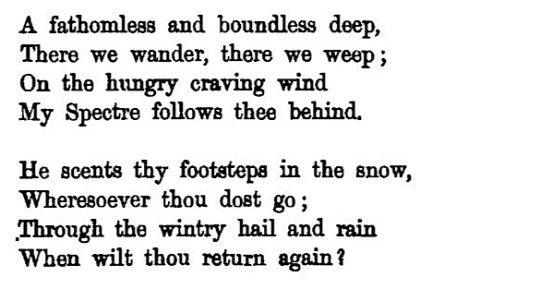
You said I killed you — haunt me, then! The murdered do haunt their murderers. I believe — I know that ghosts have wandered on earth. Be with me always — take any form — drive me mad! only do not leave me in this abyss, where I cannot find you! Oh, God! it is unutterable! I cannot live without my life! I cannot live without my soul!



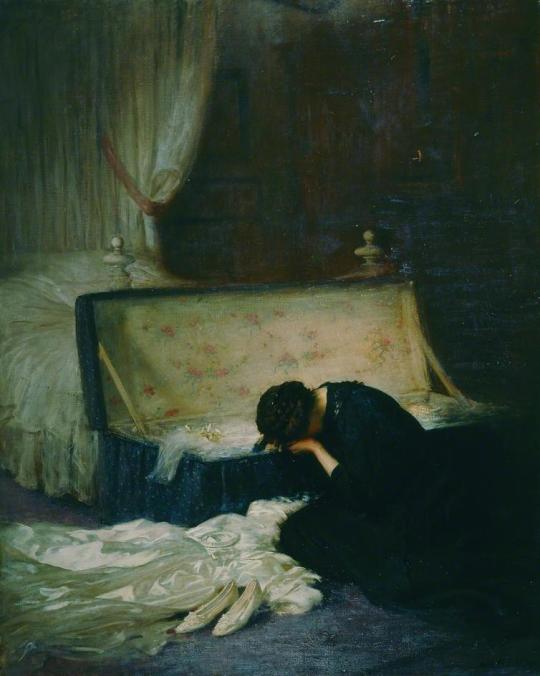

william blake, my spectre around me night and day... / emily brontë, wuthering heights / celeste ng, everything i never told you / george roux, spirit, 1885 / hamlet's parents: the dynamic formulation of a tragedy / fred elwell, the wedding dress, 1911 / jamie-lee kriewitz, ghost
62 notes
·
View notes
Text
The Tragic Shakespearean Lion Secondary
or the Tragic Shakespearean Gryffindor Secondary: a note on why I’m moving away from the HP terminology
So William Shakespeare loves Snake Secondaries. LOVES THEM. He’s got about five disguise-loving genderfluid heroines, and then there’s Petruchio, Mark Antony, PRINCE HAL the Machiavellian Actor-King hero of three plays. When Shakespeare writes a Snake secondary villain you get someone like Richard III, who is just so cool and sexy (and that is *not* just my weird thing, people have thought Richard was cool and sexy since Burbage played him in 1593.)
But the flip side of this adaptable, fluid secondary is that darn Lion. And how difficult it must be for these guys, Shakespeare seems to say, who have to just pick one thing and stick with it? All the time? Like Macbeth, who can’t keep his thoughts off his face and can’t tell a convincing lie (running joke). Or Romeo, whose fatal flaw is his inability to chill for five minutes, who isn’t even able to hide when Friar Lawrence tells him the law is coming. Has way more emotional honesty than is good for him, and just lies curled up in fetal position “there on the ground, with his own tears made drunk.”
And poor Coriolanus, the most tragic of all Shakespeare’s heroes, since he is the most trapped and the most hopeless. This play is end-of-the-Sopranos bleak (bleaker than Lear, I said it.) And at the center of it is this man who can “not be other than one thing” who is “bolder [than the devil], though not so subtle,” who shall “blush in acting” a part.
These tragic Lion secondaries try one approach, fail, and then – unlike their mercurial Snake Secondary counterparts – are doomed to try that same approach over and over and over again. You get the sense that these guys are just slamming their heads into a wall. They’re wonderful commanders (Coriolanus, Macbeth, Brutus, Hotspur, Othello). Their men love them, their wives love them, and Shakespeare kind of does too. They seem to belong to another, older, more noble time. There is something attractive and almost innocent about them, even when they’re as tough as nails. But still. Shakespeare clearly worries about what happens to them after they come home from war.
I mean, you do have Iago the Snake secondary. Who is so poisonous, so manipulative, and can wear so many faces that he lies to the audience and maybe even himself. But then there’s his Lion Secondary counterpart, Don John of Much Ado About Nothing. (They’re both trying to get revenge on their ex-commanders by making it look like a lady has been cheating on her significant other.) Don John introduces himself by saying:
“I cannot hide what I am, I must be sad when I have cause and smile at no man’s jests, eat when I have stomach and wait for no man’s leisure, sleep when I am drowsy and tend on no man’s business, laugh when I am merry and claw no man in his humor.”
And what does Iago say?
“I am not what I am.”
It should be no surprise that formidable Snake Secondary Iago pulls apart his entire world, while Lion Secondary Don John’s whole conspiracy is broken wide open by a character named Dogberry.
89 notes
·
View notes
Text
so one of the things about me is I'm a massive Coriolanus apologist
and it never gets brought up enough when people start talking about homeoerotic Shakespeare plays.
So here's the set up. Disillusioned roman general Martius Coriolanus has left Rome to find his Nemesis Aufidius, because Aufidius is the only person he feels any connection to or respects anymore. (Which is already such a good set up. my god.
AUFIDIUS: Let me twine Mine arms about that body, whereagainst My grainèd ash an hundred times hath broke And scarred the moon with splinters.
(so at the VERY LEAST they embrace, and mOST productions have Coriolanius not wearing a shirt, so Aufidius can literally trace his scars, because Coriolanus having a lot of scars is v important plot point...)
AUFIDIUS: Here I clip The anvil of my sword and do contest As hotly and as nobly with thy love As ever in ambitious strength I did Contend against thy valor. Know thou first, I loved the maid I married; never man Sighed truer breath. But that I see thee here, Thou noble thing, more dances my rapt heart Than when I first my wedded mistress saw Bestride my threshold. Why, thou Mars, I tell thee We have a power on foot, and I had purpose Once more to hew thy target from thy brawn Or lose mine arm for ’t. Thou hast beat me out Twelve several times, and I have nightly since Dreamt of encounters ’twixt thyself and me; We have been down together in my sleep, Unbuckling helms, fisting each other’s throat, And waked half dead with nothing.
(At then Aufidius just makes him co-captain of his forces.)
(it's honestly one of the reasons I think this play is kind of C-squad, it's been harder to teach historically because like what could the non-homoerotic interpretation of that speech possibly even be?)
84 notes
·
View notes
Text

✨ Setleth Week 2021 Day 4: Holy ✨
(pls click for better quality :p)
Based on Frederic William Burton's "Meeting on the Turret Stairs," which is one of my favorites <3
#fe3h#byleth eisner#seteth fe3h#setleth#art#!!#the lighting is stunning#and the absolute tenderness of their pose together…
173 notes
·
View notes
Photo
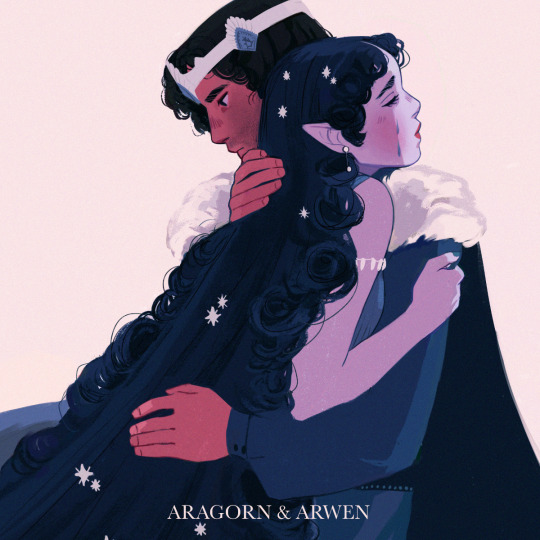

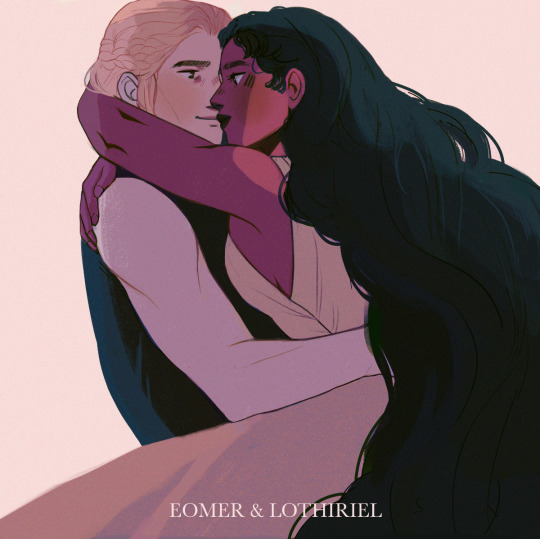
journeys end in lovers meeting, every wise man’s son doth know
edit: credit
15K notes
·
View notes
Text
Ash, Tracy K. Smith
124 notes
·
View notes
Text

Hello so was anyone else here aware that in the 2008 production and 2009 film versions of Hamlet featuring David Tennant, the part of Yorick was played by the very real skull of composer and pianist André Tchaikowsky, who donated his skull upon his death to the Royal Shakespeare Company to be used as a stage prop?
Because today I just learnt that this Yorick is the very real skull of composer and pianist André Tchaikowsky
#hamlet#shakespeare#tchaikowsky#david tennant#theatre#death mention#apparently there is a long and storied history of Yoricks being played by real skulls#highly reccomend as a research rabbithole!#the production team seem to speak so fondly of André the skull#i’m glad he got to play Yorick in the end like he wanted
132 notes
·
View notes
Text

losing my mind at this gem i found on reddit
#fascinated by how many directions the debate is going in the tags#i hope this person really did name their hamster Hamlet#hamlet#shakespeare
28K notes
·
View notes
Photo

Been a while since (not counting the holiday cards) I had the chance to do a full color piece for fun!!
6K notes
·
View notes
Text
romeo and juliet works best as a play about two girls being in love: a compilation
this post got really long im sorry but i literally cannot understate how much i care about lesbian romeo and juliet

romeo (scared, frightened, angsty, reluctant to tell anyone): takes the plunge and comes out to benvolio
benvolio (pleased, not bothered at all, cool with it, reassuring and indulging his cousin): tOTALLY CALLED IT
romeo (relieved, laughing, bantering, allowing herself to talk about being attracted to girls): also she’s really hot

benvolio: ok but real talk though maybe you just haven’t met the right guy yet
romeo: no offence but all guys look like trash in comparison??? have you seen girls?? looking at guys is definitely not gonna make me less gay sorry
Keep reading
3K notes
·
View notes
Text




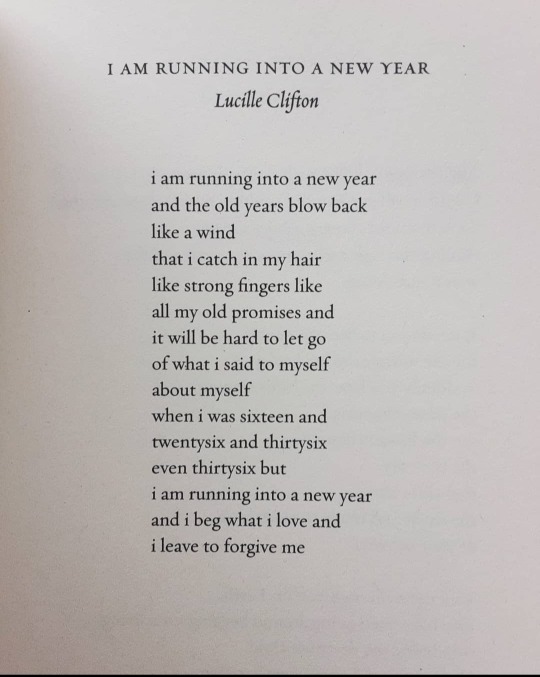



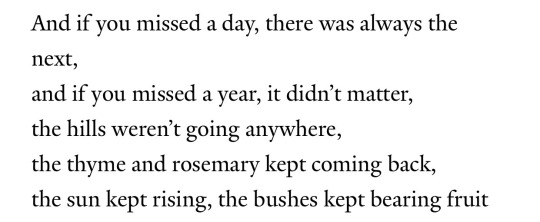
2023
invitation, mary oliver // the unabridged journals, sylvia plath // happy xmas, john lennon // north country, mary oliver // i am running into a new year, lucille clifton // salt, nayyirah waheed // diaries of franz kafka // bird by bird, anne lamott // sunrise, louise glück
11K notes
·
View notes
